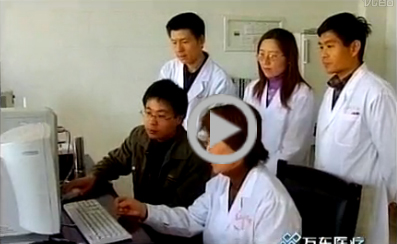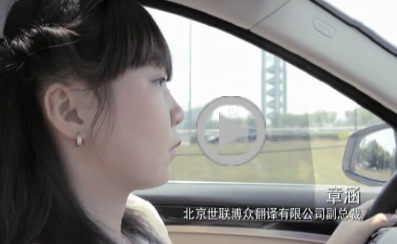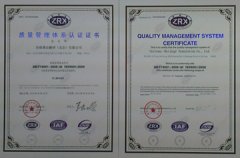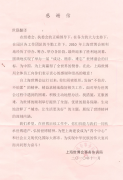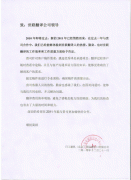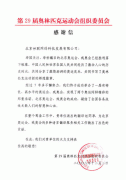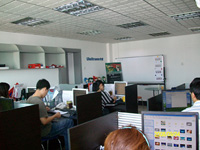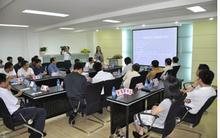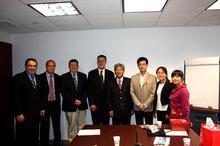- 筆譯案例
-
為聯合國兒童基金會(UNICEF)提供援助指南翻譯
發布時間:2016-10-11 17:22 點擊:
聯合國兒童基金會(UNICEF)是在全球范圍內為每一位兒童爭取權利的主導人道主義和發展機構。兒童的權利來自于安全的住所、營養、不受災害和沖突的傷害,而且貫穿生命周期的始終:對健康新生兒的產前護理、潔凈水與衛生環境、保健和教育。專業翻譯,世聯品質!歲月流轉,不變的是我們永恒的品質和真情服務.世聯上海翻譯公司,廣州公司,深圳公司,香港公司全體同事用心服務,奉獻傳世佳作.世聯博眾,成就卓越!高端上海翻譯公司,專業同傳口譯,多語筆譯,本地化,日語翻譯,日文翻譯,漢譯英,英譯漢等語言服務.路遙知馬力,15年傾力打造鉆石翻譯品質。
聯合國兒童基金會(UNICEF)在過去的60年中致力于改善兒童及家人的生活。與兒童一起,并為兒童工作,從青春期一直到成年,需要全球共同的努力以取得成果并監測成效。聯合國兒童基金會(UNICEF)還說服領導人、思想家和決策者并于他們合作,從而促進所有兒童獲得權利的渠道,尤其是那些最弱勢的兒童。
Unitrans世聯翻譯,作為全球領先的翻譯服務供應商,以低廉的價格,高品質的質量為全球非盈利機構提供優質的翻譯服務,我們旨在為推動全球非盈利機構的發展盡自己的綿薄之力。
聯合國兒童基金會(UNICEF)援助指南,是一本介紹兒童早期發展科學(SECD)的手冊。SECD旨在使任何有興趣了解早期經歷影響的人士開展現有研究,此類經歷跨度時間從胎兒到八歲左右,研究對象主要是人類的終身健康和幸福。SECD最初是一種用于幫助分享關于早期大腦發育的新興科學工具,如今,SECD已演變成三本在線生活教材和其他教育資源。SECD媒體內容豐富,包括大量最新研究,以及來自世界各地的節目示例。
Unitrans世聯翻譯作為聯合國兒童基金會的長期翻譯服務供應商,與聯合國兒童基金會(UNICEF)并肩發展,我們致力于引領中國翻譯界邁向更高的巔峰。
部分翻譯樣文:
2.0 Technical Proposal
In this technical proposal, we present a description of how and when we propose to carry out each of the project tasks, a description of our proposed expert staff and how they will work together, a company profile for AIR, and three references that demonstrate our expertise and experience.
The six tasks presented in the request for proposal for services (RFPS) and terms of reference
(TOR) cover a diversity of topics, but these topics are interrelated in order to address UNICEF’s overarching interest in supporting China’s Ministry of Education and other national stakeholders in the development and testing of innovative approaches to education. Therefore, we have staff whose roles overlap across tasks (as appropriate based on their expertise), and will coordinate this work into a holistic body of support for the efforts of UNICEF China, China’s Ministry of Education, and other key stakeholders involved in the education of China’s children.
We have defined project activities and staff based on our understanding of the priorities of
UNICEF China and the Chinese government. Because we want to work collaboratively with UNICEF and bring in the best international expertise, we will use AIR’s deep bench of extensive networks in the areas covered by the contracts to identify appropriate additional consultants based on specific requirements for expertise that emerge over the course of this work, and we will maintain a flexible and collaborative approach that allows us to be open to adapting our proposed approaches to best align with the needs of the work. Consultants will be confirmed with UNICEF and, where appropriate, we will offer UNICEF multiple candidate options, always providing biographical information that identifies the individuals’ knowledge, expertise, and experience.
We will bring to this work the same level of quality, competence, humility, and cultural competence that we have provided in our work that started in 2008. We will work collaboratively and respectfully with UNICEF and its partners and use staff who are fluent in Mandarin when necessary. We also will leverage particular assets, including:
Our understanding of UNICEF China, its needs (e.g., relationships with funders), strategic approach to its work, and periodic timing and resources challenges;
Lessons learned about China and Chinese schools through both our work in China since 2008 and study tours that both PIs have completed;
Our knowledge of education and education reform in China, including UNICEF’s contributions;
Our long term respectful collaboration with many of UNICEF’s Chinese partners, including members of expert panels; and
The knowledge gained through PI Osher’s presentations at Beijng Normal University and presentations at seminars since 2008.
2.1 Requirements
In this section, we specify our approach to completing each of the tasks specified in the RFPS.
Task 1: Develop Assessment Standards for Creative Learning and Problem
Solving
This task reflects a new emphasis in China on the promotion of creative thinking and problem solving in the classroom. The purpose of this task is to support China’s national experts in the development of student assessment standards and indicators for creative learning and problem solving for students in Grades K–12 that will be appropriate for Chinese students and schools. For this task, we will draw on some of our team members from across other, overlapping tasks (such as teaching and learning experts), and anticipate using our professional networks to bring in additional expert consultants as needed. We will rely on the leadership of the Principal Investigator (PI), David Osher, who is familiar with the Chinese standards development process and has collaborated with Professor Xin Tao at Beijing Normal University since 2012. Dr. Osher has consulted on the development of social and emotional learning (SEL) standards for Illinois, Anchorage, Alaska; and Cleveland, Ohio. In addition, Dr. Osher has led standards development for the Conditions for Learning Survey, which was then applied with consultation from AIR to the development of the Middle Years Development Instrument by Dr. Kimberly Schonert-Reichl and colleagues, and is about to be used across Canada. Dr. Osher has partnered with the co-PI (Elizabeth Spier) in the development of standards and indicators for the global evaluation of Child Friendly Schools.
When appropriate, he will consult with two AIR colleagues: Gary Phillips, who like Dr.
Osher is both an AIR vice president and Institute Fellow, and Jennifer O’Day, who is also a fellow. Phillips, a former Commissioner of the National Center for Education Statistics is an expert in standards setting and on PISA. Dr. O’Day is nationally recognized for her study of the use and misuse of standards. In addition, Dr. O’Day, an expert in creating the conditions for deeper learning, is collaborating with Dr. Osher on aligning SEL and deeper learning. We are familiar with the very high level of expertise in the development of student assessments that exists in China. Therefore, we have not included AIR’s in-house assessment experts in our key staff for this proposal, although we do have a large number of highly qualified staff whom we could bring into the project, if needed.
Task 1a: Conduct Literature Review on Assessment of Creativity and Problem Solving
The purpose of this activity is to review international research on best practices in the assessment of student creative thinking and problem solving. Creativity includes a range of attributes which include but are not limited to flexibility and originality, including the ability to see problems in new ways. These skills depend in part on social and emotional skills-originality often involves perspective taking, the willingness to pursue ideas that others do not promote, and the assessment of which ideas are worth pursuing (Sternberg, 2006). Problem solving can include both brainstorming solutions, solving both academic and social problems and handling the negative emotions that may compromise cognitive reserve, and the ability to take academic risks. For example the common SEL problem solving paradigm includes:
identifying an emotionally challenging or problematic situation;
identifying and addressing the feelings related to it;
putting the problem into words and identifying a goal;
generating multiple options and analyzing their potential short and long-term consequences for ones self and others;
making a choice and planning and rehearsing how to carry out that choice; and
taking the necessary action and reflecting on what happened and what can be learned from it (Osher et al., in press).
Our review will include sources in English and Chinese. Three examples of what we will examine come from OECD, Canada, and the United States. The first is OECD’s assessment of problem solving in the PISA, which assesses student performance in creative problem solving and measures students’ capacity to respond to non-routine situations. Our examination here will include analyzing the psychometrics of the Chinese data from Shanghai and Macao. The second will be from British Columbia, a province with Canada’s aligned social emotional and creativity standards. The third will be those aspects of the U.S. Common Core assessments that draw upon creativity and problem solving (e.g., mathematics) along with work on assessing relevant 21st century learning skills. For example, one of the four dimensions of the Assessment and Teaching of 21st Century Skills encompasses creativity and innovation, critical thinking, problem solving, and decisionmaking along with metacognition (Committee on the Assessment of 21st Century Skills, 2011).
When the review is completed, we will provide preliminary recommendations for the framework, structure and indicators to be used in China, which will be the base for work in subsequent tasks. We anticipate that our in-country partners for this effort (such as the Ministry of Education) may already be aware of some examples and resources, and we would ask them to share these with AIR.
We suggest that our focus on those aspects of creative thinking and problem solving can have a practical classroom application beyond the creation of standards. Creativity standards are related to the conditions for learning that support creativity and problem solving. This focus will enhance the practical use of our work and provide resources that can be used to assess how environments foster creativity and problem solving.
Task 1b: Identify China-Context Focused Areas for Development
This activity will be carried out through face-to-face meetings with China-based partners (such as the Ministry of Education) and remote support, which can build upon our long standing relations with our colleagues at Beijing Normal University. We will share the results of the literature review (Task 1a) and discuss how best to integrate known best practices in the assessment of creative thinking and problem solving into the Chinese context. It will be essential for any assessments developed for use in China to be fully aligned with China’s own concepts, goals, priorities, and strategies for the promotion of creative thinking and problem solving among Chinese students in Grades K–12. The end product of this work will be a strategy document for the development and validation of the standards and indicators.
Task 1c: Support Development of Draft Standards and Indicators
Based on the work carried out under Tasks 1a and 1b, China’s Supervision Office will play a lead role in the drafting of standards and indicators for the assessment of creative thinking and problem solving among students in Grades K–12. These standards should (1) be specific enough to provide expectations in relationship to the curriculum; (2) be aligned with China’s other performance standards, assessments, curricula, instructional practices, and principles of learning; and (3) be understandable for teachers, parents, and students (Hansche, 1998). We anticipate that the standards will be differentiated by grade level, increasing in rigor according to children’s development, and fit well within the existing standards for other subjects within a grade level (Rabinowitz, Roeber, Schroeder, &Sheinker, 2006).
As specified within the TOR, AIR’s role will be to provide input and technical support in this process, through a combination of face-to-face meetings and remote support. The standards indicators will be drafted in both English and Chinese. Our technical support here will be supplemented by the knowledge provided to Chinese specialists during the field visits to the United States (as discussed in Task 4), where they can observe innovative practices in use under the guidance of PI David Osher who leads both tasks.
Task 1d: Support the Finalisation of Standards and Indicators
We assume that China’s Supervision Office (and/or other in-country partners as appropriate) will carry out field testing and validation of the standards and assessments, according to the plan set forth in Task 1b. AIR’s role will be to provide input and technical support for the field testing and validation of standards and indicators as we have done in our work with UNICEF in the evaluation of the Child Friendly Schools pilot where we have supported of Shanghai Academy For Educational Research. Here we and the consultants that we bring on will provide the support though experience in developing standards and indicators. The standards and indicators will be finalised in both English and Chinese. Task 1e: Joint Documentation and Publication of Project Work
Please see Task 5 below for information on how we propose to carry out documentation and publication of project work.
聯合國兒童基金會介紹:
聯合國兒童基金會是促進建立一個實現兒童權利世界的主要推動力。我們對全球決策者及基層各類合作伙伴的影響力可將一些富有創意的想法變為現實。這個特性使得我們有別于其他世界組織和從事兒童工作的組織。
我們相信撫養和關愛兒童是人類發展的基石。聯合國兒童基金會就是為了實現這一目的而創立的—與其他機構協力克服貧困、暴力、疾病和歧視給兒童成長之路帶來的障礙。我們認為我們能夠攜手推進這一人道主義事業。
我們支持一切為兒童提供最美好人生開端的措施,因為在年幼時得到適當的關愛可以為一個人的未來打下最牢固的基礎。
我們提倡女童接受教育——確保她們至少完成初等教育——因為這將使所有兒童受益,不論男女。受過教育的女孩長大后能更有智慧、成為良好公民以及愛護子女負責任的母親。
我們為使所有兒童都能接受針對兒童常見疾病的免疫接種、使他們都得到充分的營養而努力工作,因為讓一個兒童遭受可預防疾病的痛苦或死于可預防疾病都是錯誤的。
我們努力防止艾滋病在年輕人中間傳播,因為使他們免受傷害并賦予他們保護其他人的能力是正確的。我們幫助受艾滋病影響的兒童和家庭重過一種有尊嚴的生活。
我們需要每個一人的參與去創建一個保護兒童的環境。我們隨時準備在緊急情況下以及在兒童受到威脅的任何地方幫助兒童減輕痛苦,因為任何兒童都不應遭受暴力、虐待或剝削。
聯合國兒童基金會支持《兒童權利公約》。我們努力確保受歧視的人、特別是女孩和婦女獲得平等待遇。我們為實現《千年發展目標》和《聯合國憲章》中的承諾而努力。我們為實現和平與安全而奮斗,并致力鼓勵每個人對兒童作出的承諾負責任。
我們是“全球兒童運動”組織的一部分——該組織是一個致力改善兒童生活的廣泛聯盟。我們通過該運動以及聯合國關于兒童問題大會的特別會議等事件鼓勵年輕人大膽說出他們的看法并參與影響他們生活的決定。
我們通過國家方案和國家委員會在190多個國家和地區開展工作。我們是聯合國兒童基金會。- 上一篇:為天津生物化學制藥有限公司提供翻譯服務
- 下一篇:沒有了












